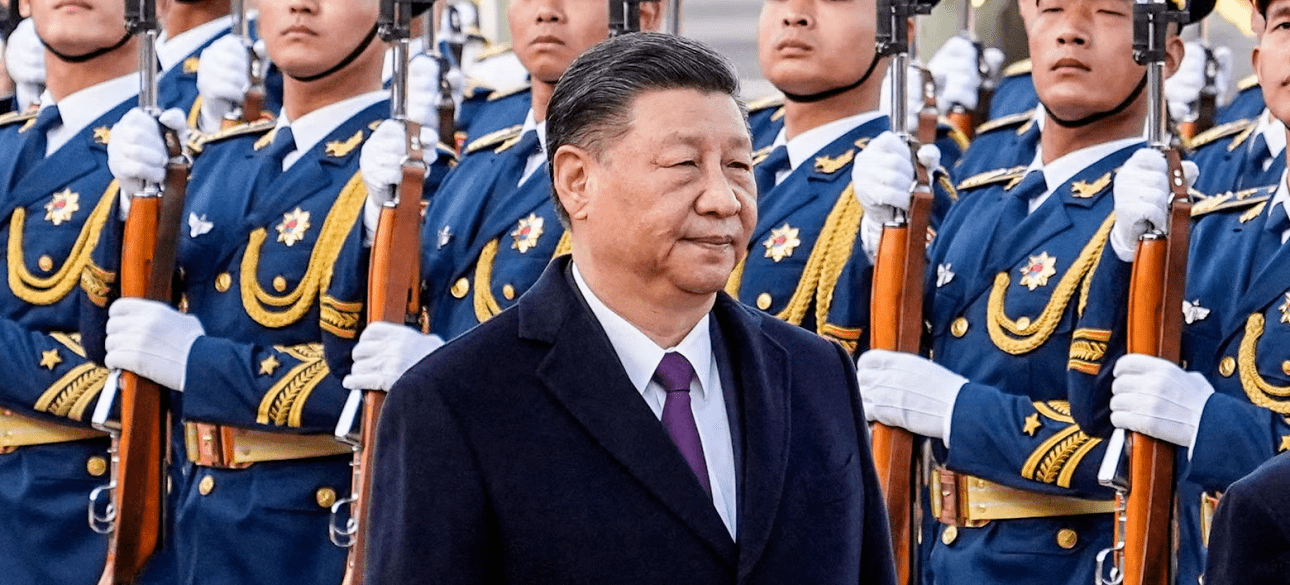
 By Victor Duda
By Victor Duda
Over the years, Beijing and Moscow have gradually created what is now seemed to be an anti -American and anti -liberal global front, which unites the desire to review not only the status of Ukraine and Taiwan, but also the entire present world order. Therefore, Russia can continue to receive significant - and perhaps even greater - help from China, which is capable of maintaining its economy afloat and war against Ukraine for many years.
Of course, Beijing's interests are still different from Moscow's interests in several aspects. The strengthening of Russia's support is associated with the risk of its already prone to the crisis of the economy, if the West has expanded sanctions against its banks and companies.
And for the first time from mid -2022, in March and April this year, Chinese exports to Russia fell as compared to the same months a year earlier, which reflects more caution, as well as problems with payments that Russian importers encountered through more pressure from the US. However, despite such events, we all need to be skeptical of the official allegedly pacifist rhetoric of Beijing.
His long -standing systematic support of Russia indicates interest in continuing confrontation and obtaining economic and geopolitical advantages. In the end, the war in Europe connects Western resources and distracts Washington's attention from Beijing's activities in other parts of the world. Russia's dependence on China is already high, and it continues to grow as Chinese companies replace the former Western trade and investment partners of Russia.
In fact, China's relative power about Russia is increasing every month of the war. While the production of weapons and ammunition in the Russian weapons industry gives rise to pseudo -growth, masking a real economic downturn, China's economy, although affected by difficulty, continues to grow. China can also import Russian raw materials with a discount while filling the partner country with its consumer goods.
In addition, Moscow gradually allows the transfer of China to more of its latest military technologies. Although Russia is not a direct vassal state, it does not have a different choice than to meet the larger requirements of Beijing - whether for discounts at energy prices, or in Chinese presence in Central Asia, or in support of Chinese hegemonist ambitions in the South and East Asia. Meanwhile, Beijing wants Moscow to win or lose in Ukraine.
Russia's victory with the support of China will strengthen Moscow, but at the same time will lead to a deep alienation of the event from Beijing. The defeat of Russia destabilizes Putin's regime and can provoke his political transformation or even destruction. This may, in turn, lead to China's access to cheap energy, Russian markets, Arctic and military-technological secrets, as well as the loss of a major partner in long-term strategic rivalry with the United States.
In view of such interests, China's peaceful calls should not be seriously treated. For more than ten years, Beijing clearly violates his obligations under the Nuclear Weapon (Day), supporting Russia. China proclaimed its respect for the sovereignty and borders of Ukraine, both in 1994, when Ukraine joined the day and in 2013, within the framework of a fully ratified Chinese-Ukrainian Treaty on Friendship.
However, since 2014, Beijing's fictitious neutrality - and his economic assistance to Moscow - played a crucial role in the radical viewing of Russia's state borders in Europe. Worse, since Russia's genocidal war against Ukraine continues to unfold, Beijing provides increasing rhetorical support.
These include, for example, "Moscow's legitimate fears", as well as purposeful (wrong) interpretation of the Kremlin's concept of "indivisible security" as a central part of his own foreign policy, accusing the West both of warning war in Ukraine and in creating tensions in Indo-Pacific.
It is noteworthy how far Beijing went in the support of Moscow, despite the negative consequences for his relations with the West and possible economic consequences - for example, as it is now, there is an increasing risk of trade war with the United States. Today, Beijing and Moscow create the image of a single, formidable and stable anti-democratic and anti-American coalition, which also includes infamous Iran, North Korea or Syria.
However, the likelihood of cracks in this informal alliance is also obvious. For example, more stronger connections of Russia with North Korea, which has gained courage, can lead to complex "three relationships", since Beijing has long been fighting for control of North Korea.
And last, but no less important: as Matthew Krenig points out in his book "Returning the Rivalry of the Great Powers", it should not be forgotten that autocratic regimes suffer from instability in their external and internal affairs. World history shows that open political systems with the rule of law and pluralism are more effective within the country, as well as in resolving international conflicts with enemies and tensions with foreign allies.
Against this background, it is important that the West maintains its determination and unity. Speaking in a specific language, it means providing Ukraine with all its support - today. The victory of Ukraine on the battlefield, achieved through the support of the event, and the restoration of the territory of the country will be the best way to curb the revisionism of Russia and China. The author expresses a personal opinion that may not coincide with the editorial position.










All rights reserved IN-Ukraine.info - 2022